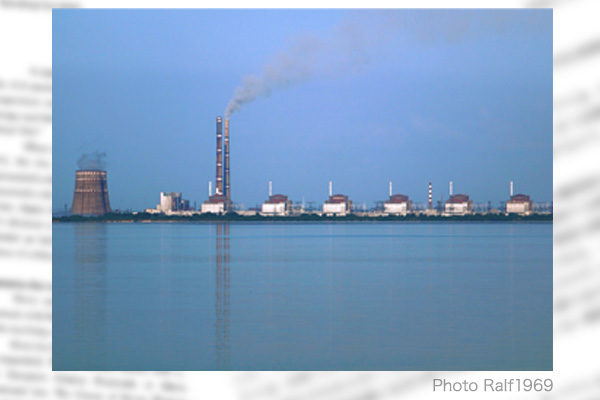The Kakhovka Dam in southern Ukraine collapsed on June 6, flooding its vast downstream area. The nearby Zaporizhzhia nuclear power plant, occupied by Russian forces, has taken in cooling water from the dam. The largest nuclear power plant in Europe would have no immediate difficulties in cooling nuclear reactors as it has back-up options available, the International Atomic Energy Agency (IAEA) said in a statement to prevent any panic. But I would like to warn that there is a potential risk of meltdown at the nuclear power plant.
Risk of meltdown
Various findings regarding the cause of the dam collapse have been reported. A lot of explosives would be required to destroy the road on top of the huge dam. Given that the road was blasted last November, it is naturally suspected that Russian forces that occupy and effectively control the dam placed explosives this time again. Four days before the collapse, the road on top of the dam was destroyed as shown by published satellite photos. Infrared rays accompanying an explosion were detected, confirming that the dam was destroyed by explosives. Russian forces might have shut down water discharge valves of the dam to intentionally trigger the collapse with excessive water pressure. Control room, power generator room and other facilities on top of the dam were also destroyed.
Human damage is expanding not only in Kherson region downstream of the dam but also the Russian-occupied territory across the Dnipro River, highlighting the cruelty of Russian President Vladimir Putin who is trying to block a Ukrainian counteroffensive. Heavy farm crop losses in the downstream area are also a matter of concern.
The Zaporizhzhia nuclear power plant was seized by Russian forces in March last year soon after their invasion of Ukraine. Plant operators, though being disturbed by the Russians, have managed to operate two of the six nuclear reactors there to provide precious electricity within Ukraine. Some 10 Russian missile attacks have damaged electricity receiving equipment and other facilities at the plant site, though reactors themselves were spared from destruction.
Russian forces have placed military vehicles in plant buildings, transforming the plant into a de facto military base, and detained and even tortured plant operators. In a bid to prevent Russian forces’ tyranny, IAEA Director General Rafael Mariano Grossi visited the Zaporizhzhia nuclear power plant. At present, IAEA officials stay at all Ukrainian nuclear plants voluntarily to monitor Russian forces and serve as “human shield” to prevent Russian missile attacks on nuclear reactors. While the United Nations Security Council has lost its function due to veto by permanent UNSC member Russia, only the IAEA among U.N. agencies is working to protect Ukrainian nuclear plants with the lives of IAEA officials.
Japan can provide water supply pipes and power cables
Russia is trying to devastate thermal power plants, power transmission towers and cables, and huge dams for hydropower generation in Ukraine. If power transmission to nuclear power plants is interrupted, they will lose external power supply and the pumps that send cooling water will stop. If fuel supply for emergency diesel power generators that can cope with emergencies stops, nuclear power plants will face a risk of meltdown. Even without Russian use of tactical nuclear weapons, Ukraine may suffer serious damage.
The IAEA estimates that the Zaporizhzhia nuclear power plant may receive cooling water supply from alternative sources for “some months.” While cooling water supply is secured, Japan should support the underground installation of water supply pipes and power cables for providing the Zaporizhzhia nuclear power plant with water and electricity from some other places.
Tadashi Narabayashi is a specially appointed professor at the Tokyo Institute of Technology and a director at the Japan Institute for National Fundamentals.


